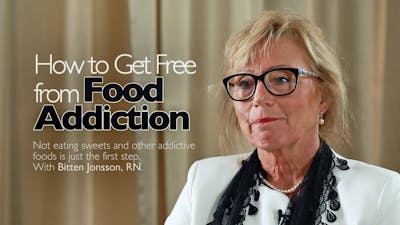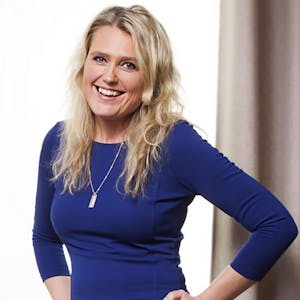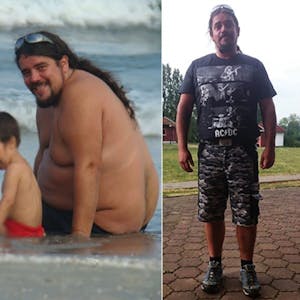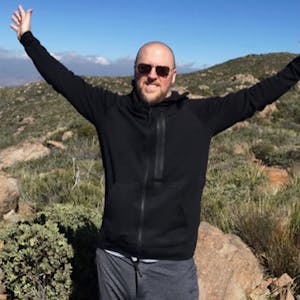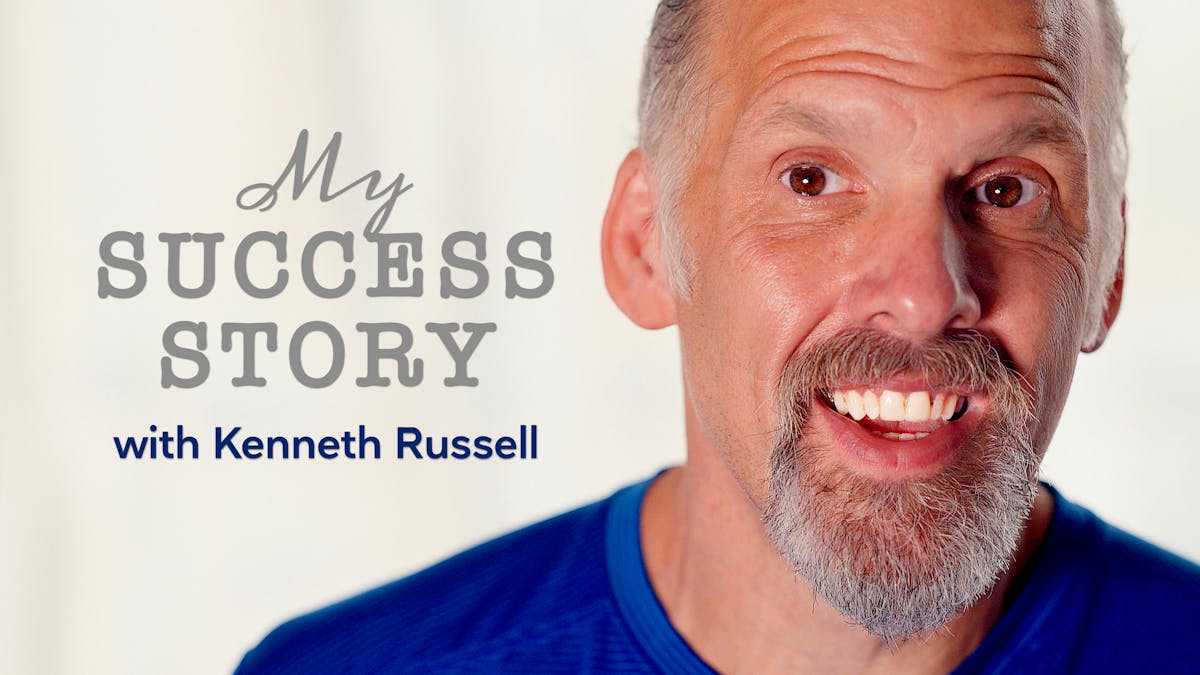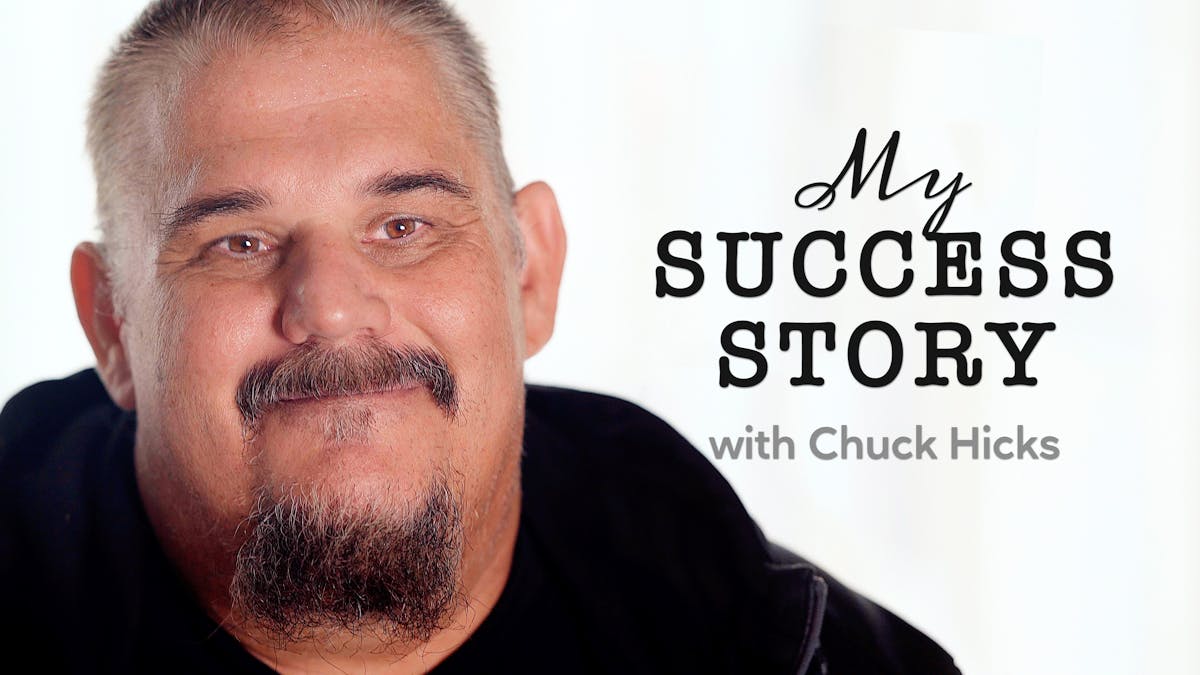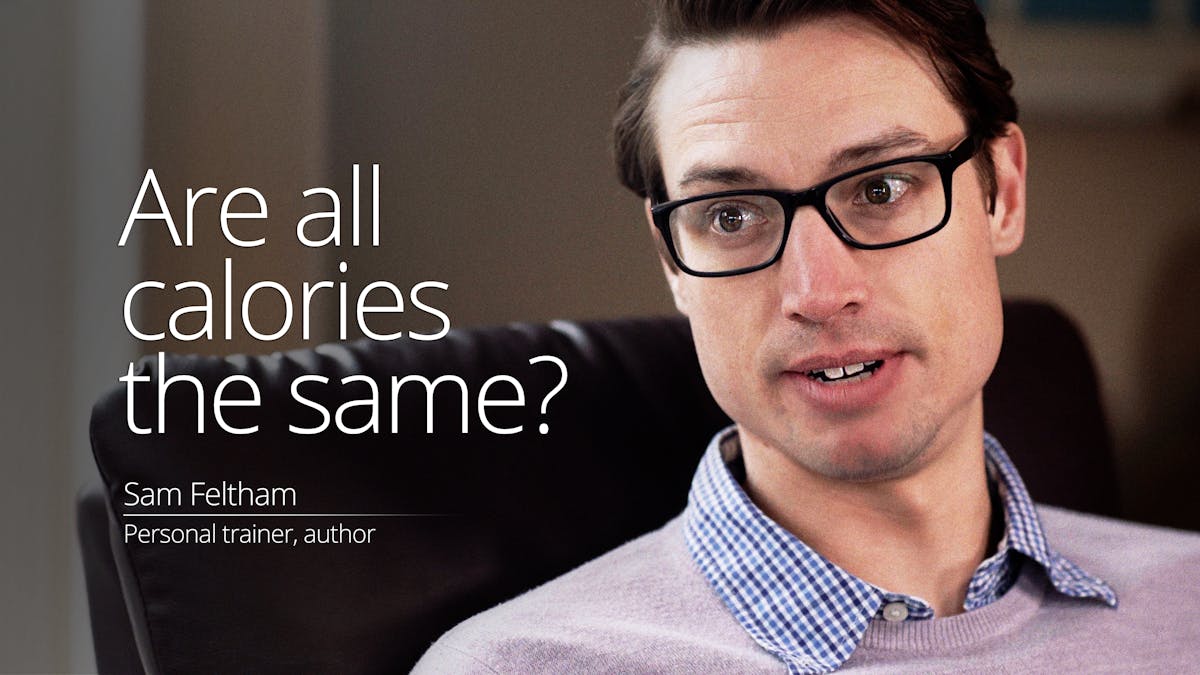“I feel better and my head feels clearer”
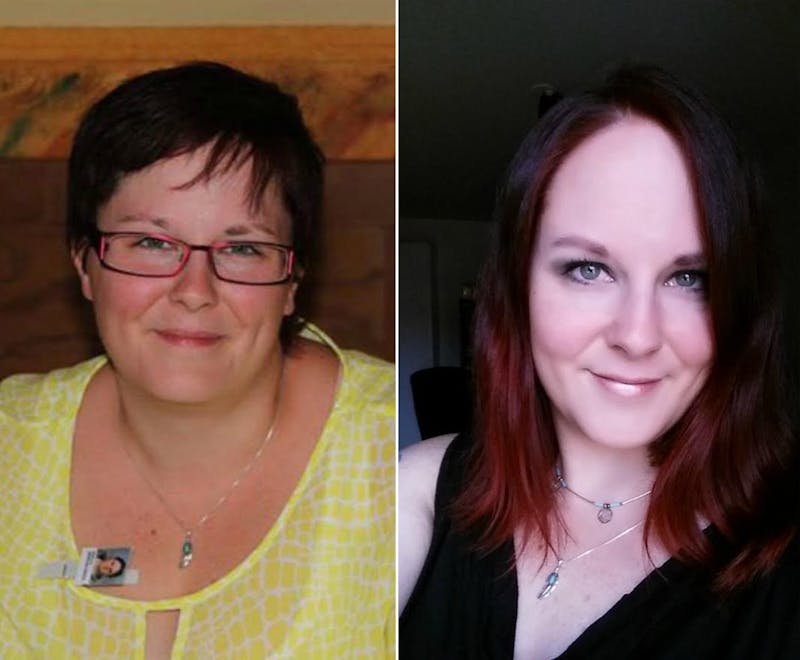
Rebecca became addicted to sugar already as a child, and since then it has been something that she has battled throughout her life. But it wasn’t until she read Bitten Jonsson’s book “The Sugar Bomb In Your Brain” (Swedish only) that she finally understood that she was a sugar addict.
Here’s how she at last came to find low-carb and the other tools to help her beat her addiction:
The Email
Sugar Addiction Part 1
Well, it took 19 years for me to realize that I am addicted to sugar. It is a chronic condition that begins in the addiction center of the brain and works the same way as being addicted to alcohol, narcotics, gambling, nicotine, shopping, or anything else that’s addictive.
It’s also only after 19 years that all the puzzle pieces have finally fallen into place. It has revealed reasons for why my life is the way it is. Why I’ve been the person I’ve been and continue to be. Why my body works the way it does and why it looks (and continues to look) the way it does.
It’s difficult to admit that much of what I have thought and done up until the present has been based on an ever-growing addiction. Many of the things I have thought and done would perhaps not have happened if the bedrock of my later addiction hadn’t been built in my early years. Already as a child I was almost obsessed with candy and unable to stop eating them.My loving parents wanted only what was best for me, they wanted to have a happy and satisfied child, and I don’t blame them for it. Sugar addiction wasn’t even on the map back then – it was of course fat that was dangerous, not sugar, when I grew up in the 90s.
Those times I was allowed to choose what to eat it was always the food I really loved -mostly pancakes with jam, sugar or ice-cream, as well as waffles covered in butter. I often had sandwiches and hot chocolate for breakfast, or milk and frosties, or my favorite – milk and rice krispies. It was also often cornflakes with milk and sugar or jam. Potatoes, fries as a side-dish at lunch, hotdogs, a mountain of pasta with a few meatballs and a lot of ketchup, always more spaghetti than Bolognese sauce, with sandwiches and hot chocolate as an evening snack.
Due to my family having some Norwegian roots we often ate Nugatti, a popular topping similar to Nutella that was chock-full of sugar, and which I happily spread in a thick layer on top of several slices of bread. When it came to the Swedish tradition of candy on Saturdays, I always ate it all at once. Though I shouldn’t forget to mention that in addition to this veritable feast of sugar there were also vegetables, proper milk, good meat, fish, chicken and a generous helping of butter (something that I also liked a lot). I was born with a brain sensitive to certain chemicals and all this sugar doomed me. In that sense it’s a pity that the world didn’t know better.
Something happened when I started school. As a 4 to 5 year old I was thin, like most children at the beginning of the 1990s. However, I know that when I started school my weight also started to rise. Sometimes we would order clothes from a small mail order catalogue and I was painfully aware that I was fat event then. I knew that the clothes for my age-group of 8 to 9 didn’t fit me and I was forced to order clothes made for 13 to 14 year olds. Yet I didn’t make the link between my increasing weight and my sugar consumption.
When I started middle school I had to change school to one where I was bullied all the time. I believe that I often numbed the hurt inside me with sugar and, if that wasn’t available, with a mountain of other food. By the time I was 12 I could eat as much as a grown man. Maybe not quite that much at home, but at school I would eat all I could and then a little bit more. I ate until I was so stuffed it was almost painful and I felt heavy and tired. Already back then, even though I didn’t think about it at the time, I had cravings for sweet things and my stomach seemed like a bottomless pit. As an adult I’ve figured out that the more carbohydrates I eat with my meals the deeper that pit gets. It feels as if I haven’t eaten at all, despite eating only a short while before.
I was often tired in class and my lack of energy meant I had difficulties concentrating. For as long as I can remember, getting up in the morning has been incredibly hard. My darling mom often had to nag me to make sure I wouldn’t miss the buss and arrive late. That’s another thing I suspect is connected to the food I ate and all the sweet things I crammed inside me.
I had a lot of love at home. I was told that I was perfect the way I was, that I was sweet, loved and kind. But deep inside it didn’t feel like that. I didn’t like myself which meant even more hurt feelings to be numbed with harmful sugar, which to my brain was a reward. It was a way to relax, feel good and forget my worries.
As a young teenager I was given an allowance from my mom instead of treats on Saturday. As soon as the 5 dollars were in my hand I hurried away to the grocery store and spent every last penny on candy. If the stores were closed I went to the nearest gas station and bought things there instead. I don’t remember ever saving my allowance for something bigger, something more useful. It was always the longed-for candy that I spent my money on.
Life is not smooth sailing, things always happen. There were several events that had a negative effect on me and that made me take an extra bit of chocolate or candy. However, it was a situation with my family and friends that changed my life in more than one way.
Life stayed much the same until I was 15, when I toughened up and chose to ignore the harsh words and looks, going my own way instead. I was still fat and didn’t like myself, but thought I shouldn’t let myself be pushed around by others. Together with my best friend, I decided to do something positive and so during the last summer vacation of junior high I biked 10 miles (15 km) nearly every evening. I was going to stop eating candy, ice-cream and cake, and – since I thought I ate too much – I decided to halve my meal portions as well. In that time I lost close to 45 pounds (20 kg). I felt better, a little more energetic, a little lighter in body and in spirit.
In my last two years of school it was easy to find new friends and I was happy. But the sugar was still there. I still ate too many sandwiches and candy lurked within arm’s reach, even though I wasn’t eating quite as much as before. I had constant cravings for desserts from the school café and if I had a free hour I would go to the grocery store and buy candy or sit down in a nearby café. I was a little wide around the middle when I took my final exams, but I still felt quite pleased with myself. Since then I have realized that the canteen food wasn’t the best for me. Sauces prepared with flour, pasta, rice, potatoes and bread. It’s hardly surprising that I always craved my drug of choice. I was still constantly tired and had difficulty concentrating, especially when listening, reading, or writing.
Things became worse once I left high school, since the connection between feelings, food, and sugar addiction became even stronger – but that will be covered in part 2.
Sugar Addiction Part 2 – Confusion Is the First Step Towards Something New
Life after finishing school was tumultuous in many ways. Many conflicting feelings stood out and I was deeply depressed for a time. At that point I ate hardly anything at all and the little I did eat was mostly a sandwich, pasta with ketchup, or some type of candy or cake. I just slept, with zero energy, zero interest in either my life or other people’s lives. A change was needed and change I did, allowing me to slowly feel better.Sugar was there as a comfort and a help. My weight had gone up considerably during my depression and went down when I became healthier emotionally. My sugar cravings were still there and have remained all the years since. An abiding love of chocolate, cake, buns, homemade pancakes with sugar, and above all potatoes; fried potatoes, baked potatoes, potato cakes, fries and above all potato wedges (which I could eat on their own with salt). My stomach was still a bottomless pit. I was always hungry and didn’t know any better.
I struggled a lot throughout my life, but I was the way I was and didn’t know anything else when it came to my health and my personality. I understood that I was too tired too often to be healthy and that sugar wasn’t good, but I ate it because it tasted good and so I just continued on as I always had. I ate things I liked, the things that tasted good, ignoring what it really meant for my body and my health. In 2010 I began studying at the university. I weighed an awful lot and looked at myself in the mirror with disgust.
I began to experiment: I bought shakes from Nutrilett and Friggs and had them as replacements for one meal a day. They tasted really horrible and I continued eating sugar alongside them. Nothing happened and I gave up after one and a half weeks. In the evenings I searched online for things that would help me. An acquaintance had had a gastric bypass and had lost over 88 pounds (40 kilos), but even as a last resort such an operation was unthinkable for me.
I thought there had to be something else I could try. I still always had candy at home, snacked on coffee and muffins during lectures, and ate pancakes, noodles or other simple food when I arrived home after having finished studying for the day. I had potato chips with a dip on weekends at the same time as the pounds slowly crept up. I was constantly tired and I struggled to study, often becoming sleepy before lectures and feeling unmotivated when revising. It felt hard to read the books and I had problems writing. Nothing much happened. I passed most of my exams by a whisker. I always found an excuse to go the café in the library and feed my sugar cravings, usually with a flavored latte and some baked goods.
In 2011 I found LCHF. I googled everything I could find and read up on it: facts, blogs, and literature that was available to buy. My first book was ‘Lose Weight by Eating’ by Sten Sture Skaldeman. I thought I may as well try it. Many people were skeptical, even people close to me, but I dared to do it anyway, hoping that I would feel better. I cleared out my pantry, fridge and freezer and filled up on everything that I was supposed to eat.It was no doubt a shock for my body since I woke up bright and early at 6 o’clock in the morning, but when I ate my packed lunch of hamburger patties, mashed cauliflower and cream sauce I suddenly felt terribly ill. I have only ever felt so ill once before and that’s why I remember it so well even today. It subsided and I became even more awake than I was before, suddenly getting the urge to exercise – which was very motivating even as the numbers on the scales went down.
What had happened to my sugar cravings then? They were still there but as focused as I was I managed not to think about it too much. For two months I ate well and exercised a bit. Sometime after that I lost my motivation. Food tasted boring and I longed for pancakes and potato wedges, muffins, and chocolate. In two months I had lost 20 pounds (9 kilos), which I then slowly but surely gained back plus more the following year while eating an increasing amount of sugar.
The last two years until now have been the worst, which was especially sad considering I now had a better understanding of what was going on. I understood how my sugar addiction had formed me as a person and had confused my common sense, no doubt being the reason behind a load of bad decisions that I had made. The most difficult thing for me was that those people closest to me made it clear I wasn’t the way I should be. Bad-tempered, depressed, having unnecessarily negative discussions about insignificant things, with no enthusiasm for life and constantly tired.
I was aware of the fact that something was wrong with me and that I felt terrible, but I didn’t have a clue why. I didn’t know how to change it. For my last birthday I got the book ´The Sugar Bomb in Your Brain’ by Bitten Jonsson. The more I read, the more I understood that the book was about me. In the list of signs of being addicted to sugar, I could tick every single one of them.The book talked about how the brain work, why certain people have genes that predispose them to being addicted to sugar and how our surroundings play a big role in how that addiction develops. She gave tips and advice about how people can try to tackle the problem, but I wasn’t mature enough to take all the information on board and put it to good use.
Time went by and I didn’t get any better. I was consumed by depression and anxiety. I was too tired to do anything, my memory was hazy. I didn’t know how to change things. I was confused and emotionally unbalanced. I was finally forced into doing something about the problem. No one else could change me except myself. I searched on the internet and found a therapist in a nearby area who specialized in sugar addiction and had been trained by Bitten Jonsson. I emailed her and we agreed to talk over the phone.
After an interview covering my habits, my childhood, my teenage years and all the criteria around sugar addiction (the interview is based on the Swedish method ADDIS which is used to check addiction to alcohol and narcotics) she emailed me a ‘biochemical repair form’, consisting of nine different questions that should give answers to what needs to be fixed in the body and brain.
The results were clear. Of the three different rungs of sugar addiction I was on the third and most serious one. I really needed help. The form I filled out also showed which neurotransmitters in the body were out of balance. The therapist recommended that I eat LCHF and totally cut out gluten, sweeteners, energy drinks and alcohol. I was to eat three regular meals a day, go on fast walks and take supplements.
It’s a little over 3 weeks ago now that I had that first conversation and stopped eating sugar. I began taking supplements 4 days ago. My therapist thinks that I need at least 100 days in order to start regaining balance in my body, but it can take up to 1.5 or 2 years depending on how well the body adapts and heals itself. I also need to work on breathing more deeply.
Up until now I can say that I feel better and my head feels clearer. I think that is mostly due to cutting out sugar and eating meals consisting of protein, fat and vegetables. It might take longer, at least 3 months, until I can feel the effects of the supplements. That the numbers on the scales have gone down is something I see as a bonus.
I’m taking each day at a time and doing my best. I’m really looking forward to living a healthy life with more energy and enthusiasm and a brain that actually works!Rebecca
Comment
We’re so happy to hear that you finally found LCHF and received help from a therapist specializing in addictions. Best wishes on your journey.
Are you ready?
Sugar addiction
- MEMBERS ONLY
![How to get started on freeing yourself from sugar addiction]()
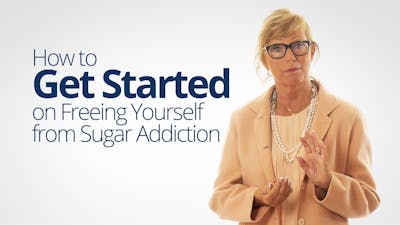
- MEMBERS ONLY
![Don't act on false emotions]()
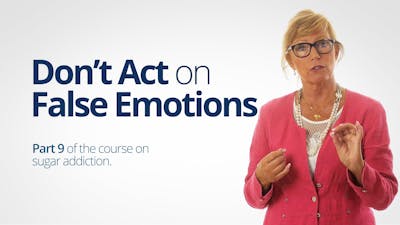
More success stories
Support
We want to assist millions of people in massively improving their health like Rebecca. Do you want to support Diet Doctor and get access to bonus material? Check out our membership.
Videos
- MEMBERS ONLY
![Why a low-carb diet and other questions]()
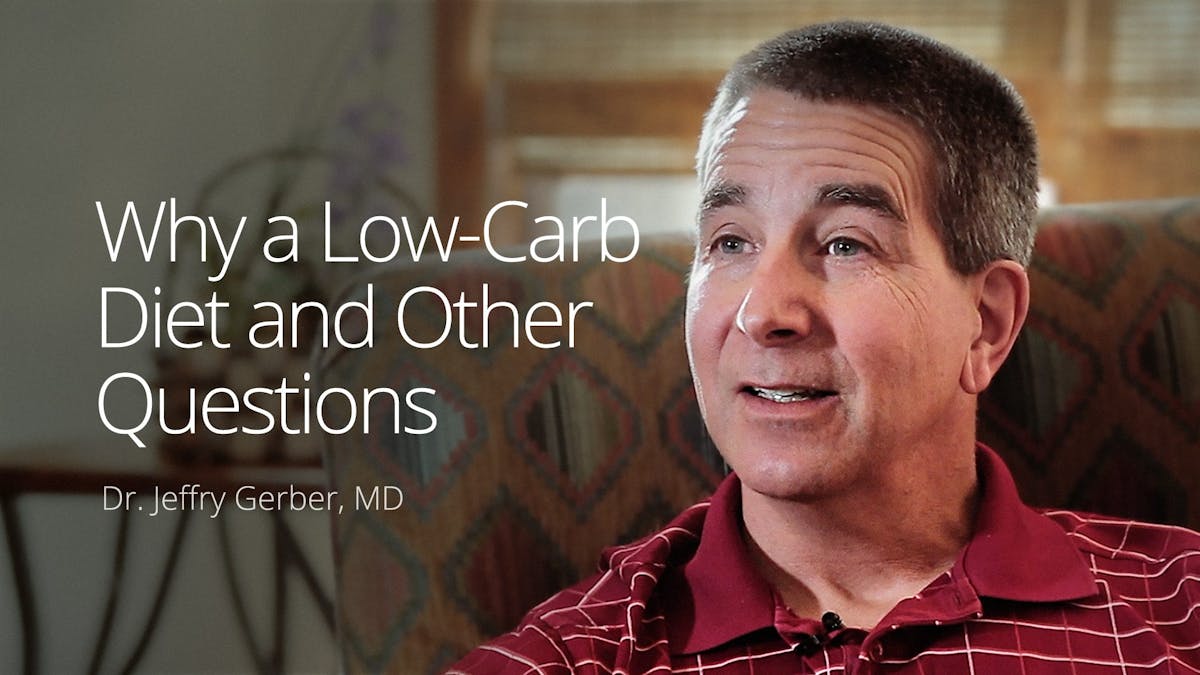
Share your story
Do you have a success story you want to share? Send your information, plus before and after photos, to success@dietdoctor.com. It would also be greatly appreciated if you shared what you eat in a typical day, whether you fast etc. More information:
Share your story!